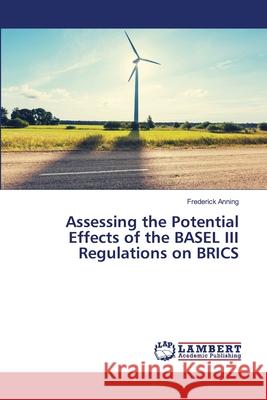Assessing the Potential Effects of the BASEL III Regulations on BRICS » książka
Assessing the Potential Effects of the BASEL III Regulations on BRICS
ISBN-13: 9786139844418 / Angielski / Miękka / 2018 / 160 str.
The 2007-2008 global crisis came as a wakeup call for regulators as well as governors of central banks globally, it was in view of that the BCBS, enacted the Basel III regulation as a tool strengthen the international banking system. The crisis saw many banks predominantly in the developed economies experience excessive leverage, low capital, and inadequate liquidity buffers making it difficult for them to survive. This however informed regulators that there was the need for a reduction in the overall systematic risks within the financial systems by way of putting place stricter regulations. The Basel Committee on Banking Supervision (BCBS) put in place these new regulations (Basel III) by way of an enhancement of the capital and liquidity requirements of banks as a way of bringing resilience in the financial system in the face of future financial crisis. This notwithstanding, various concerns as to whether this universal phenomenon would be a way to safeguard banks within the emerging and less developed economies not limited to economies within the BRICS zones i.e. (Brazil, Russia, India, China and South Africa)











